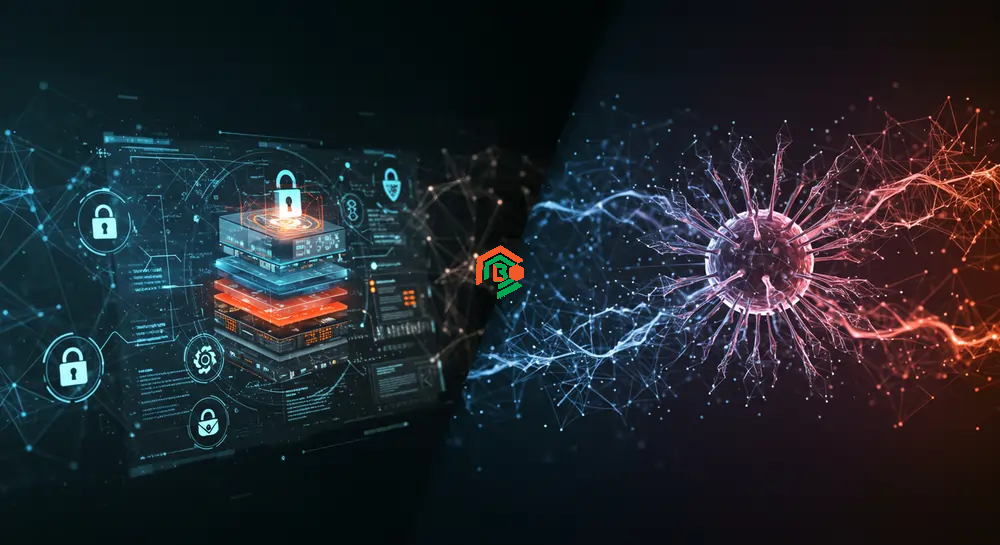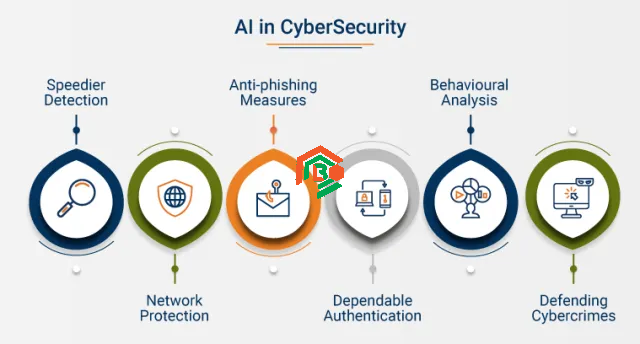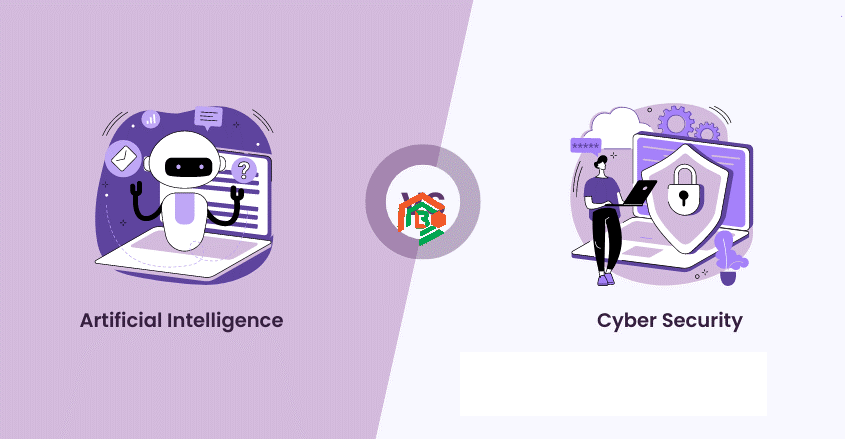Ever wondered whether it’s easier to learn cybersecurity or artificial intelligence (AI)? You’re not alone. With technology growing fast, many people are looking to start careers in tech. But choosing between these two popular fields can be confusing. So, let’s break it down in a way that’s easy to understand and based on real facts.
What’s Easier to Learn – Cybersecurity or AI?
Both cybersecurity and artificial intelligence are growing fields with lots of job opportunities. But when it comes to learning, they are quite different.
Cybersecurity focuses on protecting computers, networks, and data from bad guys (called hackers). AI, on the other hand, is about teaching computers to think, learn, and make decisions like humans.
If you are just starting and don’t have a tech background, cybersecurity is generally easier to learn. Why? Because it deals with real-world problems like viruses, passwords, and network safety – things you might already use every day. AI, however, involves more math, coding, and concepts like machine learning, which can be hard for beginners.
What is Cybersecurity? (And Why It Matters)
Cybersecurity is like a digital security guard. It protects your phone, your computer, your online accounts, and even your bank information from being stolen or hacked.
Think about all the personal stuff you have online – photos, emails, passwords, or credit card info. If someone gets access to that without permission, it can cause a lot of harm. That’s where cybersecurity steps in. It keeps your data safe and private.
Every time you use the internet, there’s a risk of cyberattack. From social media to shopping websites, there are threats like phishing scams, malware, and identity theft. Cybersecurity experts work behind the scenes to stop these threats and make the internet safer for everyone.
How Does Cybersecurity Work?
Cybersecurity uses tools, strategies, and rules to protect systems from attacks. Some common ways include:

- Firewalls – These act like a gatekeeper that blocks harmful traffic from entering your device.
- Antivirus Software – This looks for harmful software (called malware) and removes it.
- Encryption – This scrambles your data so only the right person can read it.
- Two-Factor Authentication (2FA) – A system that asks for two types of ID (like password and a code sent to your phone) to log in.
Cybersecurity experts look for weaknesses in a system, fix them, and test if the system is safe. They also respond to security breaches and make sure nothing is stolen or damaged.
Who Uses Cybersecurity Every Day?
Almost everyone uses cybersecurity, even if they don’t know it. Some common users include:
- Schools and Universities – To protect students’ data.
- Hospitals – To secure patient records.
- Banks – To guard money and financial info.
- Businesses – To keep customer data safe.
- Government Agencies – To protect national secrets and public services.
Even when you use your smartphone to log in with Face ID or fingerprint, that’s a form of cybersecurity in action.
What is Artificial Intelligence (AI)?
Artificial Intelligence is when computers are trained to act like humans. AI can recognize voices, understand text, make decisions, and even learn from experience.
Think of AI like a robot brain. It can read lots of data, find patterns, and make choices based on that data. It’s not just one technology – AI includes machine learning, deep learning, natural language processing, and more.
AI is everywhere now. It’s behind your phone’s voice assistant, your Netflix recommendations, and even the filters on Snapchat or Instagram.
Can a Computer Really Learn?
Yes, it can! AI systems use something called machine learning to improve over time.
For example, if you show a computer thousands of pictures of cats, it can learn what a cat looks like. The more pictures you show, the better it gets at spotting cats. This is called “training” an AI.
It’s similar to how a child learns. At first, they don’t know what a cat is. But after seeing cats again and again, they can recognize one easily.
AI learning needs a lot of data, strong computing power, and complex programming. That’s why it can be harder to understand and build compared to cybersecurity.
Examples of AI in Real Life
AI is not just something from science fiction. It’s used in many parts of our lives:
- Smart Assistants like Siri, Alexa, and Google Assistant
- Self-Driving Cars that use AI to see the road and make driving decisions
- Social Media Algorithms that suggest videos or posts based on your interests
- Chatbots that help answer questions on websites
- Medical AI that helps doctors detect diseases earlier
AI is powerful, but it also needs to be used carefully. If AI is trained on bad data, it can make wrong decisions. That’s why ethics in AI is a hot topic today.
Cybersecurity vs AI: What’s Easier to Start With?
If you are new to tech, cybersecurity is often easier to begin with. Why?
- It doesn’t require deep math or coding at the start
- There are beginner-friendly courses and certifications
- You can quickly learn how to protect a network or set up security
- Jobs are available even with basic knowledge
AI, on the other hand, usually requires a stronger foundation in programming (like Python), math (like linear algebra), and statistics. You also need to understand how data works and how to train a model.
So, for most beginners, cybersecurity is the better choice to start – especially if you want to jump into the field quickly.
What Skills Do You Need for Each One?
Here’s a look at the key skills needed for both:

Cybersecurity:
- Basic IT knowledge
- Networking and operating systems
- Cyber laws and ethics
- Security tools (firewalls, antivirus, etc.)
- Certifications (like CompTIA Security+, CEH)
AI:
- Programming (Python, R, Java)
- Math and statistics
- Machine learning algorithms
- Data science and big data tools
- Tools like TensorFlow, PyTorch, or scikit-learn
AI requires more technical depth, while cybersecurity is more hands-on and practical at the beginning.
What Jobs Can You Get in Cybersecurity or AI?
Both fields have great job opportunities with high salaries. But the types of jobs are different.
Cybersecurity Jobs for Beginners
- Security Analyst
- IT Support with Security Focus
- Penetration Tester (Ethical Hacker)
- SOC Analyst (Security Operations Center)
- Network Administrator
These roles often require only a basic certification and can be entry points into higher-level cybersecurity jobs.
AI Jobs for Starters
- Data Analyst
- Junior Machine Learning Engineer
- AI Research Assistant
- Python Developer
- AI Tester
AI jobs usually require more education or experience, even for junior roles. Most companies want candidates with strong programming and math backgrounds.
Which One is Right for You?
The answer depends on your background, interests, and goals.
If you love solving real-world problems, enjoy working with systems, and want to protect people from hackers, then cybersecurity might be for you.
But if you love math, data, and the idea of teaching computers to think like humans, then AI might be a better fit.
If you’re unsure, you can start with cybersecurity and switch to AI later – both fields are connected, and many skills overlap.
The Bottom Line
So, which is easier – cybersecurity or artificial intelligence?
For most beginners, cybersecurity is easier to learn and faster to get started with. It requires fewer technical skills at the entry level and offers plenty of job opportunities right away. AI is fascinating and powerful, but it needs more time, patience, and technical learning.
Both fields are high-paying, in-demand, and future-proof. If you’re thinking about a career in tech, you can’t go wrong with either. But if you’re looking for an easier entry point, cybersecurity is your best bet.
Remember – no matter where you start, what matters most is staying curious, always learning, and not being afraid to explore new things.


